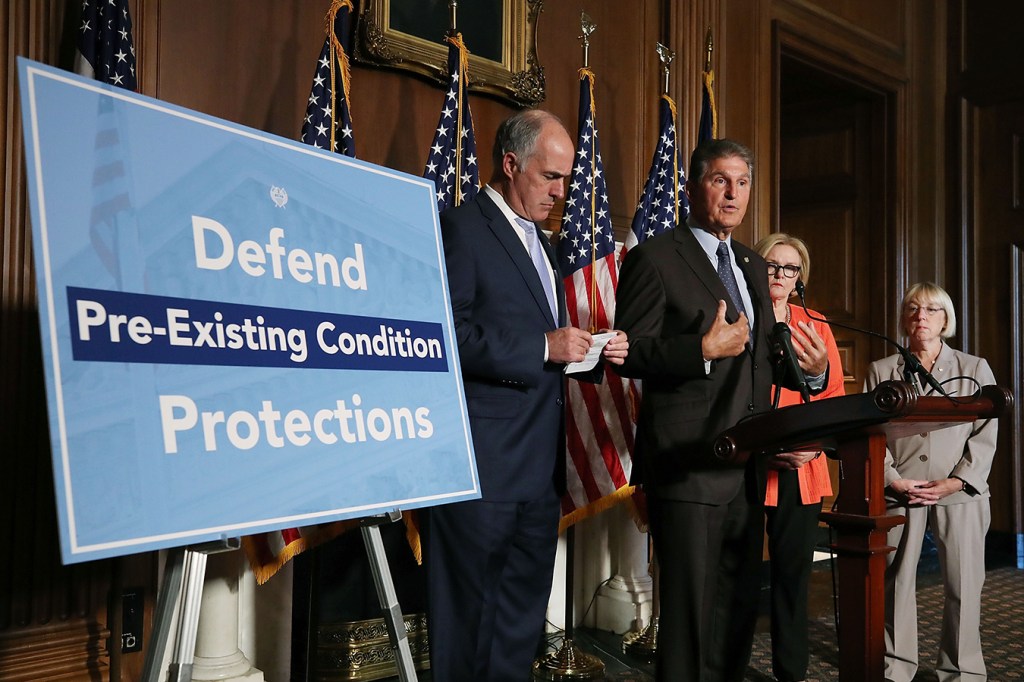California Healthline reporter Harriet Rowan explains the latest challenge to the Affordable Care Act by breaking down the numbers — and looking, state by state, at who might be affected by any changes to protections for people with preexisting conditions. She spoke to Tonic editor Susan Rinkunas on “The VICE Guide to Right Now” podcast, and you can listen to their conversation at vice.com.
But here’s some background to understand the ongoing challenges for health care in the United States.
States seeking to overturn the Affordable Care Act must do a delicate dance. That’s because most of them have higher-than-average rates of residents with preexisting conditions — a group specifically protected under the ACA. The 2010 health law prohibits insurers from charging more or denying coverage for such conditions, and that provision remains popular across the country and party lines.
Twenty GOP state attorneys general and governors filed a challenge to the constitutionality of the ACA in February. Last month, the Department of Justice under Attorney General Jeff Sessions sided with them and decided not to defend key portions of the ACA, including the preexisting conditions provision.
Nine of the 11 U.S. states with the highest rates of preexisting conditions have signed on to the lawsuit, according to an analysis published by California Healthline on July 17.
The challengers to the law have said they support protections for people with histories of illness but that the law is unconstitutional and that there are other ways to provide those protections.
Most experts don’t expect any immediate changes, since the lawsuit will take a considerable amount of time to work its way through the courts. Should the GOP-led states ultimately prevail, the impact of losing the protection for preexisting conditions would vary by state. In some states, there is no similar protection to replace the federal one afforded by the ACA. Other states do have such protections.
In California, for example, where more than 5 million people have preexisting conditions, state rules would protect them for 12 months if the ACA were struck down. Some consumer advocates in the state believe that would give lawmakers enough time to pass a law offering longer-term protection.
California Attorney General Xavier Becerra is leading the defense of the ACA in the case, joined by 16 other Democratic attorneys general.
This story was produced by KFF Health News, which publishes California Healthline, an editorially independent service of the California Health Care Foundation.







